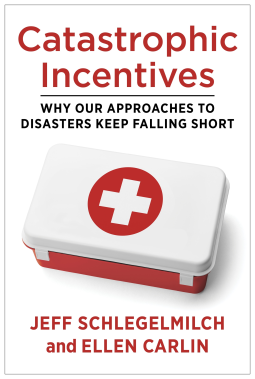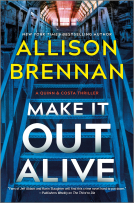
Catastrophic Incentives
Why Our Approaches to Disasters Keep Falling Short
by Jeff Schlegelmilch; Ellen Carlin
This title was previously available on NetGalley and is now archived.
Send NetGalley books directly to your Kindle or Kindle app
1
To read on a Kindle or Kindle app, please add kindle@netgalley.com as an approved email address to receive files in your Amazon account. Click here for step-by-step instructions.
2
Also find your Kindle email address within your Amazon account, and enter it here.
Pub Date Oct 03 2023 | Archive Date Jan 03 2024
Talking about this book? Use #CatastrophicIncentives #NetGalley. More hashtag tips!
Description
Societies are vulnerable to any number of potential disasters: earthquakes, hurricanes, infectious diseases, terrorist attacks, and many others. Even though the dangers are often clear, there is a persistent pattern of inadequate preparation and a failure to learn from experience. Before disasters, institutions pay insufficient attention to risk; in the aftermath, even when the lack of preparation led to a flawed response, the focus shifts to patching holes instead of addressing the underlying problems.
Examining twenty years of disasters from 9/11 to COVID-19, Jeff Schlegelmilch and Ellen Carlin show how flawed incentive structures make the world more vulnerable when catastrophe strikes. They explore how governments, the private sector, nonprofits, and academia behave before, during, and after crises, arguing that standard operational and business models have produced dysfunction. Catastrophic Incentives reveals troubling patterns about what does and does not matter to the institutions that are responsible for dealing with disasters. The short-termism of electoral politics and corporate decision making, the funding structure of nonprofits, and the institutional dynamics shaping academic research have all contributed to a failure to build resilience.
Offering a comprehensive and incisive look at disaster governance, Catastrophic Incentives provides timely recommendations for reimagining systems and institutions so that they are better equipped to manage twenty-first-century threats.
Advance Praise
"A critical examination of recent events and our capacity to prepare and respond to them. With this work, the authors review the key drivers of disaster infrastructure, and the incentives that sustain them. As we reflect on the lessons of the COVID-19 pandemic and observe the landscape ahead, this book is a valuable resource."
--Nicolette Louissaint, SVP of Policy, Healthcare Distribution Alliance
Available Editions
| EDITION | Other Format |
| ISBN | 9780231204231 |
| PRICE | $30.00 (USD) |
| PAGES | 288 |
Available on NetGalley
Average rating from 3 members
Readers who liked this book also liked:
Andrew Guthrie Ferguson
Computers & Technology, Nonfiction (Adult), Politics & Current Affairs


















